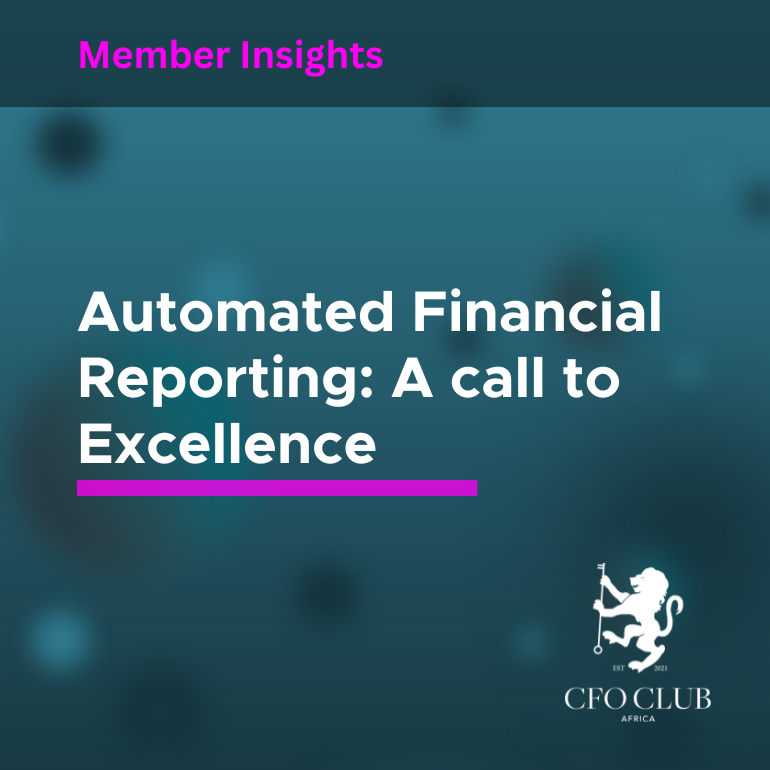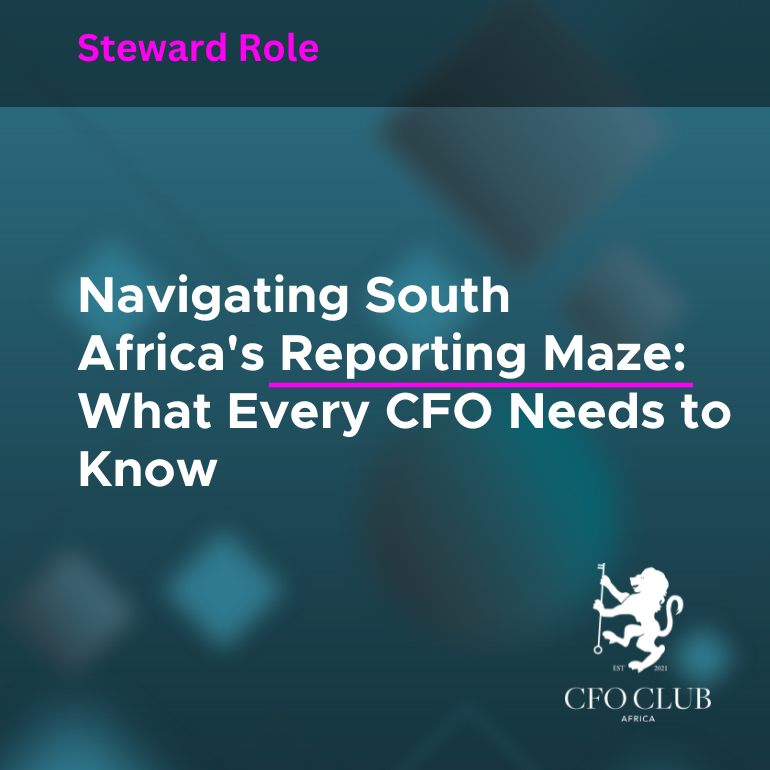The head and the heart of the business: Five key attributes CEOs look for in their CFOs
The CFO of the past was primarily a number cruncher focused on avoiding risk and making conservative estimates. Today the CFO has moved into a more direct leadership role and requires new skills and tools to work alongside the CEO.
The current climate of continuous complexity and uncertainty has ushered in a new era for the C-suite. Organisations are changing strategies and radically rethinking more traditional roles. Within this context, the CFO has evolved to become the CEO’s closest ally and advisor.
As such, CEOs are on the lookout for CFOs who bring a variety of value-adding tools to the table. This means that the modern CFO will only stay relevant by extending their expertise beyond the finance role and by moving towards being a collaborative and insightful business partner.
1. Be a strategic business partner
Reporting on the numbers is no longer the CFOs sole responsibility. Today’s new strategies require new metrics. Going forward a company’s success will be determined by more than earnings per share with total shareholder value (TSV) becoming the expected reporting standard. TSV requires big picture thinking and a holistic view of the business including its shareholders, internal teams, customers, general consumers, and the community. The CFO should be guiding and influencing the CEO using the financial context as a driver for their partnership as Chief Growth Officers.
Telkom CEO Serame Taukobong explains the strategic role of the CFO as follows, “The CFO is like the heart of the organisation. His job is to pump blood across the entire body. The CEO is the brain of the body and needs to inform the heart where to pump the blood. So it’s important for the CEO and CFO to figure out how they can work together for the body to perform at its best.”
2. Be a person of integrity
Following numerous business scandals involving the audit function over the past few years, CFOs are expected to usher in a new area of ethical accounting. The modern CFO is the conscience of the business and cannot pay a yes-person who placates a profit-hungry CEO with the numbers they are looking for. A progressive CFO does what is right, not what is easy, and is driven by a strong personal ethic and professional pride.
Furthermore, CFOs will lead the reforms that are necessary to transform their organisations into ethical entities. This includes issues of social sensitivity, like diversity and inclusion, as well as pressing issues such as ESG reporting. This will require genuine leadership that cuts to the heart of all business functions, not just a superficial pledge or press release.
3. Be inclusive by adopting new methods of engagement
As stated in the previous point, CFOs are expected to lead on issues of diversity and inclusion. This starts “at home” within the finance function meaning that CFOs need to surround themselves with diverse finance teams that bring a variety of skills and perspectives to the table. The best CFOs are leaders, but also allow their teams to lead them by bringing their unique assets to the organisation.
Seeing as the CFO function runs like a golden thread throughout the organisation, CFOs are also best positioned to break down departmental corporate silos. Modern CFOs realise that siloed communication leads to sub-optimal performance and in response they adopt more transparent, flat models that allow for communication to flow through critical functions more naturally during the course of a business day.
4. Be an empowering leader
Given the interconnected nature of today’s organisations, the finance function cannot sit squarely within the remit of the CFO and the finance function. Instead, the CFO of the future will provide the tools and information needed to empower departmental heads to run their own finances. This will take the form of the CFO generating the tactical information that nonfinancial managers will need to turn into actionable tasks within their teams. This has the dual effect of enabling greater participation in the finance function and of demystifying the role of finance, allowing more effective communication and creating greater buy-in across the business.
CFOs can easily make this leap by using simple automated reports and charts to make complex financial information more palatable to company managers.
5. Remove complexity and encourage agility
Modern organisations need flexibility embedded within their core in order to respond to ever-changing markets. The CFO leads this by removing as much internal complexity as possible in order to put the business in the best position to respond to whatever happens. As the business grows, the job of the CFO is to optimise across all functions and to cut-down temporary fixes, exceptions, and unprofitable complexity.
Without this proactive, systematic approach the organisation will be left with a collection of accumulated disparate solutions that slow down the organisation, makes operations more opaque, and masks critical issues and flaws, leaving the business in a position where it is unable to respond to contemporary challenges, never mind future opportunities.
While the CEO role is not about to disappear, the time has come for CFOs to step in to share the burden. The CFO of yesteryear was a highly skilled bookkeeper and a rule follower. The CFO of the future will evolve from the person who says “No” to one who says “Grow”.





